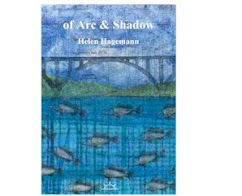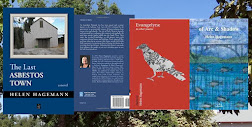5 Tips on Being a Writer & 10 Tips for Writing a Great Story
by Helen Hagemann
It’s not hard to discover good writing. When you pick up a good novel, or a great short story, the pages will actually transport you into that world. A good writer has the ability to grab you instantly, no matter what genre. The language, choice of words, interesting turns of phrase, technical skill (ones they have practised, over and over) will have you sinking into your pillow, the book propped up on your lap, and you are gone from this world into that nether world they have created. J.K. Rowling has done this successfully with young readers. You’re there with the characters, making associations on how you feel exactly the same way, or that you can commiserate with that character. You too were bullied by a crone of an aunty in the same manner!
Firstly, however, here are some guidelines that you must adhere to as a writer, if you want to finish anything! Next, my 10 most positive tips for writing and how to write a great novel/short story.
5 Tips on Being a Writer
1. Don’t answer the phone, make it selective listening. Get message bank.
2. Develop a ritual to get into your writing practice. I have 3 cups of tea in the morning, then I start. Don’t worry if your ritual is weird, no one has to know about it. John Steinbeck sharpened several pencils before starting. Jack Kerouac lit a candle before starting his writing and blew it out when he had finished.
3. The internet trap. I have an internet addiction, so hence I have set up my blogs for writing poetry and prose. This is part of my writing practice, apart from my journal or going straight to the novel/prose. Later, I transfer the poems and novel chapters to their rightful word files. You might find that you are also spending too much time on the internet, researching, reading, surfing, emailing, etc. You need to find a way to leave this kind of practice to get to the real practice of writing. Why not set a timer to go off loud and clear.
4. Procrastination. We all do it, it’s a kind of disease where you find yourself adding words to your word count, but they’re not written yet. When we procrastinate about how the novel or story is coming along we know we are fooling ourselves. Hemingway once said, 'You know where you have to go, and do what you have to do, and see what you have to see. But quite often we don't do what we have to do.' Certainly, we should put that procrastinating energy into our characters. Let “him” or “her” procrastinate. It’s like passing the buck.
5. Innovation and motivation can often lie dormant. However, that does not mean they have gone forever. Sometimes they lurk in the recesses of the mind. Oh, there they are, you say. I am actually writing the story inside my mind. My character is going to do this, this and this. How about that? It’s often been called writing on the back-burner. It’s really a very good thing to do. Thinking about a scene or what your current character is going to do will eventually arise, travel from that consciousness (or subconscious – depending on the weather) i.e. your brain down to your fingertips, then it will tap its way out on the keyboard. Thinking about your story is also called brainstorming. It might start out one way in your mind, but when it finally goes on the page, it’s probably different, even better. Your innovation and motivation channel have woken up! Now you’re writing.
Best of luck, writers!
10 Tips for Writing a Great Story
Firstly, every writer must be a reader. You must read the genre you are writing. Otherwise how else do you know what has gone before? When starting out you are allowed to be an imitator, but later on it’s best to be an innovator. In other words, write what you do not find. Write the missing, and of course you can do this if you have become a voracious reader, a writer amongst your ilk, discovering what others have not done.
1. Gathering ideas is like gathering the darling buds of May. They are precious. Collect them, store them, put them in your journal. Never be without an idea. Learn where to find ideas, i.e. in books, at university, in your creative writing class, from a story/anecdote from your own life/ your family’s, your experiences will eventually show up somewhere, because as Natalie Goldberg states, 'the mind is the writer’s landscape.'
2. Writing is like being a film director. You are going to direct the scenes, the characters, the tension, tone and suspense, then the outcome. Picnic at Hanging Rock is a story well told that has all of the right ingredients. To write a great novel or story, something has to happen. A novel not only needs good writing, i.e. technique, but there must be a reason for telling the story in the first place. Truman Capote was impelled to write In Cold Blood because he met (& researched) the two murderers who killed an innocent farmer and his family. Linda La Plante chooses certain crimes reported in newspapers for her crime novels. So, whichever method you use, still think of yourself as a film director, with several projects on the go. You can switch from one to the other to avoid what I call “staleness of the mind”. Some characters go cold, it’s not their fault entirely, but sometimes they need a rest as well as you do. Later, you will come back to them with fresh ideas. It’s like changing into fresh socks.
3. Read poetry to increase your word knowledge. Why poetry? It is a condensed genre and poets have spent several hours finding the right words, so make use of their skills. Plus you will pick up rhythm, the senses, kinetic energy, and singular words that replace very long sentences. Language is part of the writer’s toolbox, so keep on learning new words. There are over 600,000 words in the English language. We can never learn or use all of them but we need to keep our writing fresh. Pepper your writing with a new word when you can.
4. The story. Don’t make it all dark, make it light and dark. Readers don’t want to be depressed, they want the drama, as well as the love/sex scene or hilarious moment.
5. Do not censor yourself as a writer. If your character is a rough yobbo he probably swears from time to time. You are not doing the swearing in your story, your character is. Also humans make love and if your story is “realism”, then your characters might be hopping into bed naked, or running around the house − starkers. Remember what Roland Barthes said, the author is dead. In other words, he meant that once the story hits the pages “the author” no longer exists. He/she becomes the narrator, the narrator-character, that entity we know as the storyteller( First, second or third-person POV). Therefore, the writer is free from blame or corruption.
6. Grab your reader with a zinger of an opening. Publishers, apparently, read the first opening sentence, and if that grabs them they will continue on and finish the first paragraph. From there if they are hooked with your great writing they will read the first chapter. First chapters are crucial. Don’t spend too much time polishing your first chapter in lieu of not completing the novel/story. You need to finish the whole thing, and then go back and get the first chapter to zing, sparkle, combust the room while you're punching the air with your fist. Even entertain the idea that Hemingway or Faulkner could not have done it better. Do the very best you can, and edit/alter where necessary.
7. Drafting. You may hear writers talk of their novels coming out in one first draft. This is nonsense. Bryce Courtenay reviews/edits his novels 30 times, so do most other writers who are successful and highly published. It is a myth to think that the story will need no editing. Practice editing for improvement, re-working a scene, a sentence or use of language for better effect.
8. Don’t rush towards the end. Be relaxed about your writing/story. Let the work sit for 2-3 weeks then go back with fresh eyes. It’s a good habit to get into. You may even find the story will write itself. Why? Because even in your sleep you have been thinking about it!
9. Enjoy being a writer. If you love what you do, it will show in the work, in the dedication to your art. Mix with other writers, as working alone is like being in dense, tangled jungle without a machete. It is also a disadvantage because you cannot get constructive criticism from your fellow writers, as readers, as your peers. Who by the way, will see your typos, anachronisms, grammatical errors, dangling participles, etc.
10. Spelling and grammar are important. Spell check but with precaution. American spelling is okay if your novel is going to be published in the U.S, but here in Australia we still need to use good old Oxford English. Check your tenses, too! Past tense works well for back story/going back in time, and present tense works well in the current situation of your character.
Amanda Lohrey has also written 10 tips on writing @ Black Inc Books blog























0 comments:
Post a Comment